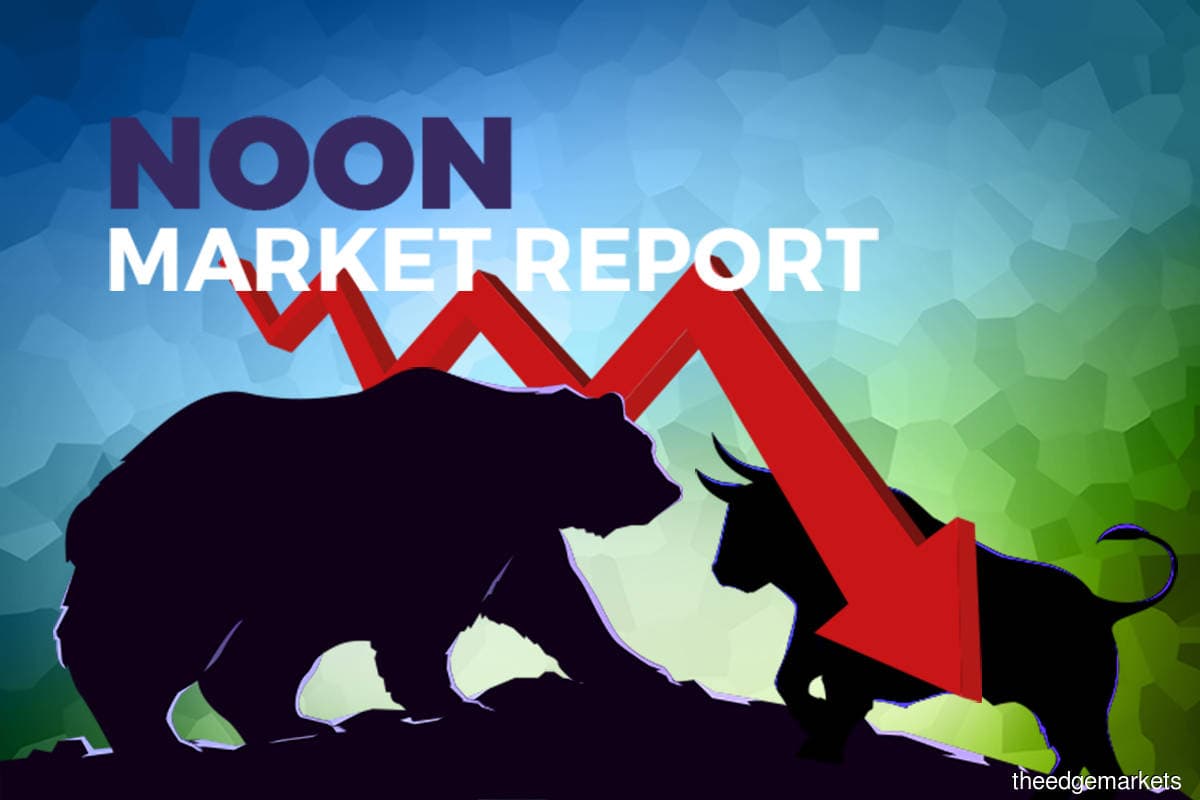
KUALA LUMPUR (Sept 14): The FBM KLCI opened lower on Wednesday (Sept 14) following overnight losses on Wall Street, which occurred due to an unexpected uptick in the US’ August inflation figures. The benchmark index remained in negative territory throughout the morning session.
At midday break, the benchmark index fell 0.84% or 12.50 points to 1,475.34. The index had hovered between a high of 1,480.55 and a low of 1,473.63.
While all Bursa’s gauges were in the red, Bursa Malaysia’s Technology Index ― which tracks share prices of companies including semiconductor manufacturers ― was the top percentage decliner, whereby it fell 1.35 points or 2.07% to 63.74.
Meanwhile, Reuters said Asian shares tumbled, the dollar held firm and the US yield curve was deeply inverted on Wednesday, as a white-hot US inflation report dashed hopes for a peak in inflation and fuelled bets that interest rates may have to be raised higher and for longer.
The US Labor Department’s consumer price index (CPI) of 8.3% in August came in higher than an expected 8%, while core inflation ― which strips out volatile food and energy prices ― came in higher at 6.3%, beating expectations of 6%.
Fears of the US Fed’s continued policy tightening pushed the Dow Jones Industrial Average down 1,276.37 points or 3.94% to 31,104.96, the S&P 500 lower by 177.72 points or 4.32% to 3,932.69, while the Nasdaq Composite dropped 632.84 points or 5.16% to 11,633.57.
Rakuten Trade Sdn Bhd vice-president of Equity Research Thong Pak Leng said as US inflation figures came in below expectations, fears of the US Fed speeding up its interest rate hikes have pushed more funds back to the US.
“Other regions such as the Asia Pacific may see capital outflow, which will have a negative impact on their equity markets,” he opined.
Areca Capital Sdn Bhd chief executive officer Danny Wong said that the local benchmark index will hover at its current level, adding that the technology gauge fell the most percentage-wise due to the flip in market sentiment.
“Technology stocks are down the most as for the past few days, they had rebounded from a low. Market sentiment has changed due to the expectations of the US Fed’s aggressiveness on the interest rate,” he said.
Wong said that the US’ higher-than-expected inflation figures for August have pushed the market to worry that the US Fed is not going to temper its tightening policy, which may point toward a higher recession risk.
“The market is almost confirming a 75 basis point (bps) hike to 3.25 [in September’s meeting], while some are saying it may be a 100 bps hike to 3.5. They (US Fed) may even want to push it in December with another 50 bps hike, which would put the rate at 4% and adds more risks to a recession,” he added.
Malacca Securities Sdn Bhd head of research Loui Low Ley Yee concurred and said that the US core CPI's month-on-month increase ― which rose 0.6% in August, from the 0.3% increase in July ― puts to bed any rebuttals of US inflation being tamed.
“[US] inflation is still there, which is within our expectation of more headwind for the market. When this happens to the US, it will also affect us [the local market], which as you can see in morning trade, the market is down,” he added.
However, Low noted that the US Fed hiking its rates could result in a potential upside for local banking stocks, as it could push BNM to hike the overnight policy rate (OPR).
Touching on the Technology Index, he said that the negative sentiment on technology stocks is set to persist until the conclusion of the US Fed’s Federal Open Market Committee (FOMC) meeting on Sept 20 and 21, and could continue if the meeting ends with an aggressive rate hike.
Expected ringgit aftershocks, US Fed forcing BNM’s hand
With an expected aggressive rate hike from the US Fed encroaching, fears of a further retreat in the ringgit have been stoked. On the heels of the US market's overnight plummet, the ringgit on Wednesday depreciated against the US dollar by 0.0197 or 0.44% to RM4.5275.
Thong noted that expectations of the US Fed’s prolonged hawkish stance to tame inflationary pressure will push capital back to the US and out of other regions.
Wong said that if the US Fed continues on its aggressive interest rate route, Bank Negara Malaysia (BNM) may be left with no option but to hike its rates to maintain parity.
“In case the US Fed hikes rate so aggressively, it adds downwards pressure to our currency (ringgit), and the central bank (BNM) has no choice but to catch up to their (the US Fed’s) pace to counter this pressure, even though our inflation has not shown to be very significant.
“BNM is trying to make sure that the market is stable in terms of currency, inflation and policy. If the external market is so volatile and if everyone hikes their rates, the central bank may have to follow suit,” he said.
Thong concurred that if the US Fed does proceed as expected with a 75 bps hike, BNM may hike OPR in November, but in a smaller quantum, he noted.